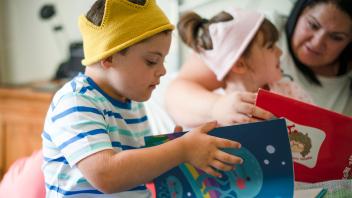Working with children means that you work with the significant adults in their lives. I’ve often found — both personally and professionally — that parents are flummoxed by the huge number of messages about raising children; all too often parenting becomes fraught with guilt.
I also know that all parents simply want the best for their children. They just may not know how to provide it. I saw this firsthand when I worked with parents who had been separated from their children due to incarceration.
Over the years that I worked with a prison-based ‘family literacy’ program, I saw men and women who had never had a book shared with them before the program, enthusiastically share books with their own children during special visits to the facilities once they had experienced the pleasure of sharing a good story well told, well-illustrated and often culturally relevant.
I found it interestingly that fathers realized they could positively influence their children’s growth and contribute to their emerging literacy. All too often, however, mothers felt like it was something they — women — should already know.
But it has to be acknowledged that kids don’t come with manuals and many of the more traditional ways of sharing parenting information have eroded. All the same, it is widely accepted that early exposure to language and literature builds the foundations for a child’s emerging literacy assuring future success which all parents want for their children. We also know that not has easy access to books for young children.
That’s why it was exciting to learn about a recent collaboration between the Children’s Book Council and the unPrison Project .
The project to connect incarcerated women with their very young children will launch on the last day of Children’s Book Week , which just happens to be Mothers’ Day.
I’ll always remember a drawing by a child whose father was incarcerated. In the middle of a long sidewalk between two brick buildings was a large, open book. It was the book that connected the prison where her father lived and her own apartment building.
Books build bridges. A shared book can provide a common experience to connect parents and children over time and space, regardless of why they’re apart.

